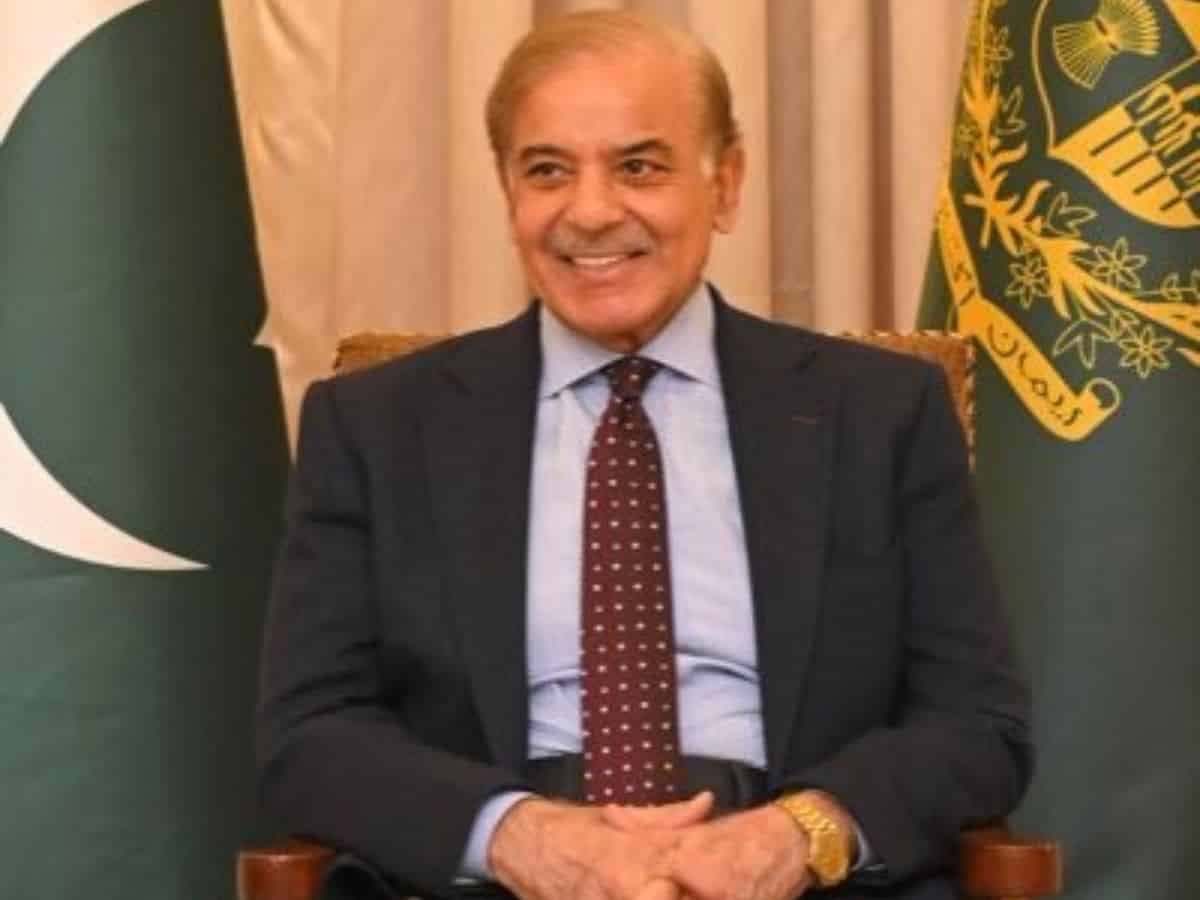
Islamabad: The newly-elected government of Pakistan Prime Minister Shehbaz Sharif has decided to work on a comprehensive five-year roadmap for the cash-strapped country’s economic resurgence, according to a media report on Friday.
This strategic blueprint will focus on curbing inflation, alleviating poverty and creating jobs, the Dawn newspaper reported.
“In the first meeting, the prime minister sought estimates from different ministries and divisions and formed a committee to go back to the ministries to set five-year targets in different sectors, such as IT, agriculture, industries, energy, food and livestock, reforms in FBR (Federal Board of Revenue), ease of doing business, etc,” Minister of State for IT Shaza Fatima Khawaja said after the meeting.
Khawaja said the committee, after getting the required information from the ministries and divisions, would prepare a consolidated document carrying five-year targets for all sectors. She said several meetings would be held soon on the five-year roadmap.
Earlier, speaking at the meeting, Prime Minister Sharif said consultation should be held on the plan with all stakeholders of different sectors of the economy.
“Without wasting any time, implementation of projects for the economic stability and progress of the country should be ensu red,” Shehbaz said, according to an official statement issued by the Prime Minister’s Office (PMO).
The prime minister said a schedule of implementation for the projects should be presented and steps should be taken on a priority basis to speed up progress in the sectors of agriculture, livestock, information technology, foreign inves tment and small and medium (SME) enterprises.
He said the government would reduce its expenditure and he would not allow “further waste of money of the poor”.
“In the next five years, the country’s economy would be stabilised to put the country on the path of progress,” he hoped.
Shehbaz, 72, who earlier this month took oath as the country’s PM for a second time since 2022 amidst staggering economic and security challenges, said tax revenue would be increased with digitalisation and technology, while per-acre yields in the agriculture sector would also be increased with the use of technology.
The loss-making government institutions would be privatised on a priority basis, he added.
Cabinet members Ahsan Iqbal, Muh ammad Jehanzeb, Ahad Khan Cheema, Dr Musadik Malik, and various high-ranking officers attended the meeting.
Earlier, Federal Minister for Maritime Affairs Qaiser Ahmed Sheikh reiterated Prime Minister Shehbaz’s commitment to Pakistan’s rapid development and asked the opposition parties to work with the government to provide relief to the common man.
Minister for Petroleum and Energy Musadik Malik told journalists on Thursday that the prime minister had also decided to bring down political and social tension in the country.
“In such a tense situation, even a house cannot run, let alone a country,” he said, adding that “we need to show tolerance while maintaining differences so that a tolerant future could be given to a growing population”. However, he did not spell out the required measures.
The prime minister, he said, had prepared a couple of sectoral strategies for agriculture, education, SMEs’ promotion and energy transition to cheap and green energy. He said that under the agriculture strategy, farmers in rural areas would be provided direct subsidy so that they could arrange fertilisers.
This would be a departure from the existing subsidy regime that provides cheap gas to manufacturers, who pass on the benefit to farmers only partially and keep the remainder with them to earn profits, the report said.
Likewise, farmers in rural areas would be provided quality seeds directly for increased productivity to remove middlemen and monopolistic seed companies charging heavy costs to consumers. These farmers would also be facilitated in operating their tube-wells on solar energy, it added.
The coalition government came to power after the February 8 elections but it began its tenure with a dwindling economy which needs immediate improvement.



